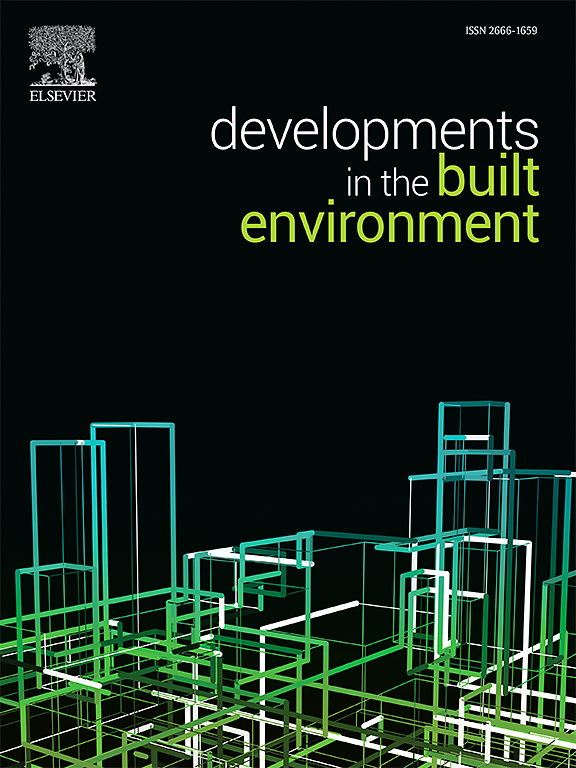通过高压灭菌器预处理和添加高硫酸盐木质素,提高植物混凝土的性能并实现碳负性
IF 6.2
2区 工程技术
Q1 CONSTRUCTION & BUILDING TECHNOLOGY
引用次数: 0
摘要
传统混凝土的大量环境足迹和不断增加的建筑和拆除废物量迫切需要开发新型、可持续的建筑材料。无水泥植物混凝土(BC)由混凝土和木材废料制成,促进闭环回收,但耐水性差,尺寸不稳定。本文研究了木颗粒和高硫酸盐木质素(KL;30-70 wt%)的添加来改善BC的性能。最佳高压灭菌(160-180°C, 5分钟)最小化膨胀至7%。结果表明,复合处理显著提高了BC的耐水性。然而,高KL含量(>30 wt%)提高了耐水性,但降低了弯曲强度。此外,生命周期评估(LCA)确认了开发的BC的碳负潜力,确定了关键的排放热点,并提出了进一步的减排措施。这些发现突出了改性BC在可持续建筑中的潜力,并指导了环保建筑材料的发展。本文章由计算机程序翻译,如有差异,请以英文原文为准。
Enhancing performance and achieving carbon negativity in botanical concrete via autoclave pre-treatment and high kraft lignin addition
The substantial environmental footprint of conventional concrete and the escalating volume of construction and demolition waste necessitate urgent development of novel, sustainable building materials. Cement-free botanical concrete (BC), made from concrete and wood waste, promotes closed-loop recycling but suffers from poor water resistance and dimensional instability. This study investigates autoclave pre-treatment (12 conditions) of wood particles and high kraft lignin (KL; 30–70 wt%) addition to improve the performance of BC. Optimal autoclaving (160–180 °C, 5 min) minimized swelling to 7 %. Results revealed that the combined approach significantly enhanced the water resistance of BC. However, high KL content (>30 wt%) improved water resistance, it reduced bending strength. Furthermore, a life cycle assessment (LCA) confirmed the carbon-negative potential of the developed BC, identifying key emission hotspots and suggesting further reduction measures. These findings highlight the potential of modified BC in sustainable construction and guide the development of environmentally friendly building materials.
求助全文
通过发布文献求助,成功后即可免费获取论文全文。
去求助
来源期刊

Developments in the Built Environment
Multiple-
CiteScore
7.40
自引率
1.20%
发文量
31
审稿时长
22 days
期刊介绍:
Developments in the Built Environment (DIBE) is a recently established peer-reviewed gold open access journal, ensuring that all accepted articles are permanently and freely accessible. Focused on civil engineering and the built environment, DIBE publishes original papers and short communications. Encompassing topics such as construction materials and building sustainability, the journal adopts a holistic approach with the aim of benefiting the community.
 求助内容:
求助内容: 应助结果提醒方式:
应助结果提醒方式:


